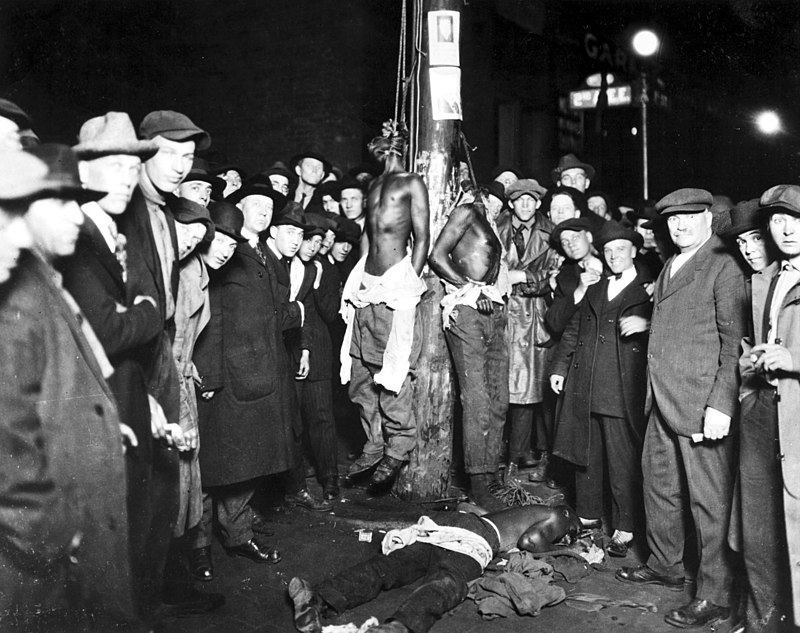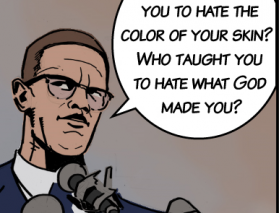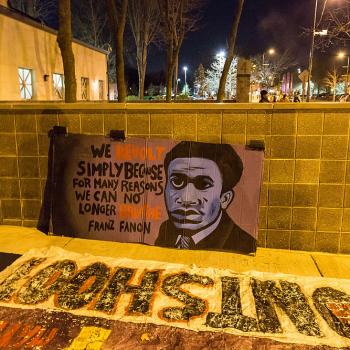Republican presidential candidate Donald Trump has perpetrated Islamophobic fears by calling for a ban on Muslim immigration to the United States due to concerns about terrorism, when Black Muslims such as Omar Ibn Said, Bilal Muhammad, Abdurrahman Ibrahim Ibn Sori, and Ayuba Suileiman Diallo were forcibly brought to America against their will and terrorized on U.S. soil.
If the aim of a ban on Muslims is to get rid of the Muslim presence in America, the action is futile as the largest contingent of Muslims in America consist of indigenous African-Americans. This is an interesting social reality when one considers that Islam had been completely wiped out among the adherents of black slaves due to the repressive measures undertaken by white plantation owners who succeeded in eradicating the faith.
The question then becomes: how did Islam reemerge among the descendants of black slaves who were forcibly taken to America? The answer to this question problematizes Islamophobic assumptions and reveals a far greater source of violence that continues to be omitted from mainstream discourse about terrorism.

The Most Hon. Elijah Muhammad, who witnessed several lynchings as a young boy growing up in Georgia, stated that “Islam is a powerful religion. If the so-called Negroes of the South…would accept Allah and his religion, Islam, their dreaded fear of the white man’s brutality and murder would be over.” This statement articulates a key reason for why Islam was so attractive to blacks: Islam inspired them to overcome their dreaded fear of white violence. Islam was presented and seen by blacks who turned to the religion as the cure of the devastating and deeply ingrained psychological fear of white people.

Malcolm X, whose father was kidnapped from his home and killed after being tied to a railroad track by the KKK, stated that “the Holy Qur’an tells us not to pick a fight but to defend ourselves.” For people who were the subject of such grotesque violence, this message was deeply inspiring and impactful.
Malcolm X subsequently expressed that “That’s a good religion. And doesn’t nobody resent that kind of religion being taught but a wolf, who intends to make you his meal..” Malcolm identified Islamophobia as emanating from the oppressor fearing the oppressed would practice self-defense.
African-American Islamic Scholar Imam Zaid Shakir writes that,”The psychological slavery created by this system was broken down, in large part, by the fearless oratory of the likes of Malcolm X. “ The oratorical tradition of Black Muslims rooted is the Qu’ranic mandate to stand firmly for justice and to only fear God. The Black Muslim oratorical tradition worked to remove the fear that had been instilled within black people.
Out of the plethora of religious scriptures claiming to be divine, African-Americans turned to the Qur’an, which enabled them to overcome their fear of white people and to protect themselves from being attacked from white terrorism.
In the contemporary era, the sinking feeling that one gets in your gut at the prospect that you or loved ones may be subjected to a random act of violence is the reason why terrorism is such a hot political topic. Unfortunately, for black people this fear is not unique but has been their everyday lived experience since they were brought into this country. The problem is when white people feel the potentiality of terror, the entire world is expected to share the sentiment, mourn and be in fear.

When black people feel the potentiality of terror, the entire world operates business as usual without any concern for their pain and suffering. When white people feel terrorized, it becomes universalized. However, when black people feel terrorized, it becomes apathologized and particularized.
Articulating this, the prominent Black comedian, Paul Mooney, after 9/11 stated that,”White people I want to thank you for making us tough. They have been terrorizing us for 500 years, sticking dogs, putting water hoses[on us], lynching us. We are used to terrorists; this ain’t no big deal to us.”

The history of how Islam spread among African-Americans is actually an indictment of the structural violence in the United States. If it is true that Islam, as Islamophobes assert, that Islam is so barbaric and violent, and African-Americans constitute the largest group of American Muslims, who en-masse converted to Islam in the sixties as a tool of empowerment to defend themselves against the horrors of anti-black violence, what does that say about the depth of the violence, depravity, and barbarity of white supremacy in America?
It reveals a source of an even greater violence. Islam among Black Americans was part of a survival strategy of coping with, overcoming, and defending themselves against the anti-black terrorism that they had been subjected to.
While Islam is viewed from the lens of national security and portrayed as a significant threat to world peace, political scientist Charles Mills in The Racial Contract states that literary and media discourse won’t mention “the basic political system that has shaped the world for the past several hundred years. And this omission is not accidental.” This omission reflects the fact that whites “take their racial privilege so much for granted that they do not even see it as political.” While media and literary discourse are replete with the dangers of “political Islam”, there is a complete lack of warnings of the systemic dangers of political white supremacy.
Islamophobia, which seeks to make Islam synonymous with violence, barbarity and depravity, is also damaging to the black liberation struggle in America. In seeking to create a hyperbolic threat out of Islam, it obfuscates the very real, systemic crimes of white supremacy and criminalizes Black Muslims who utilize Islam to resist the structural violence inflicted upon them by a white supremacist society.












